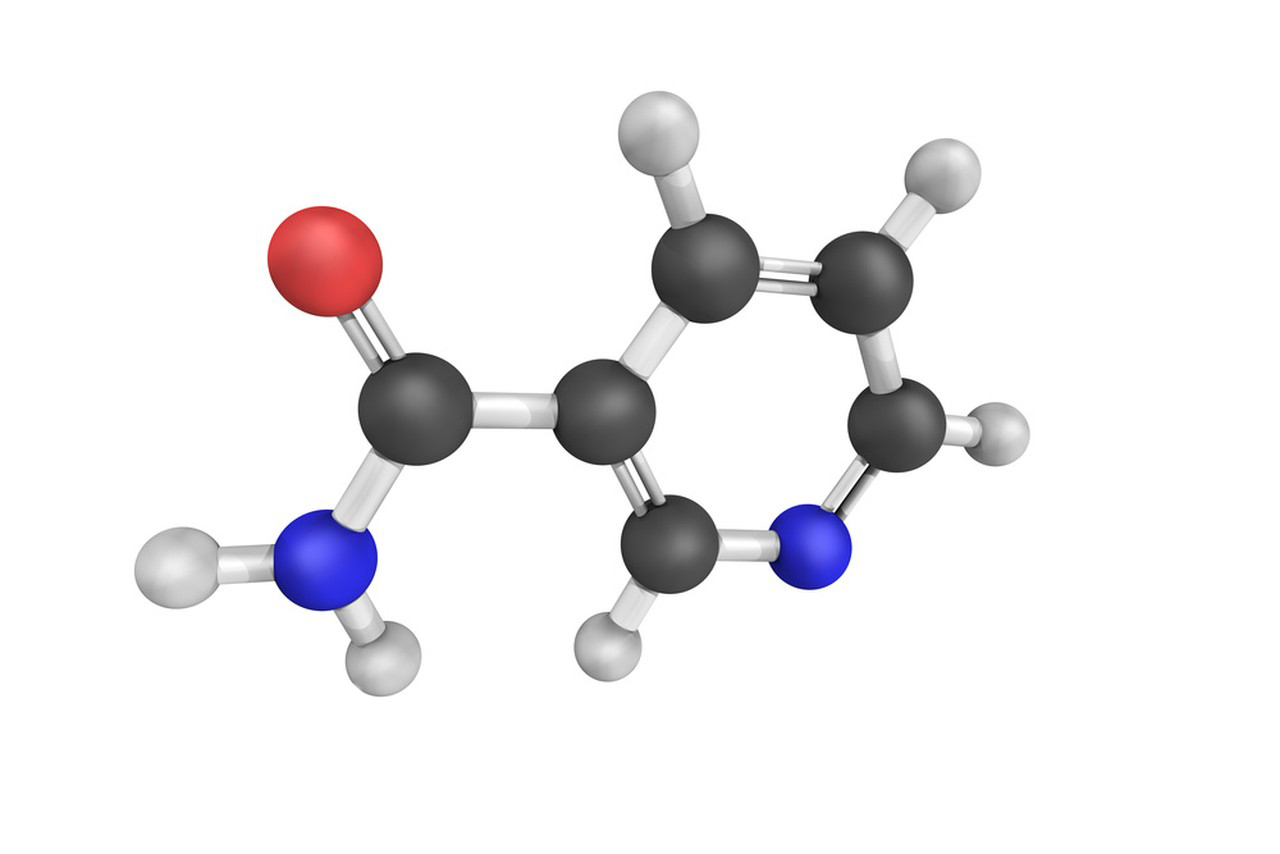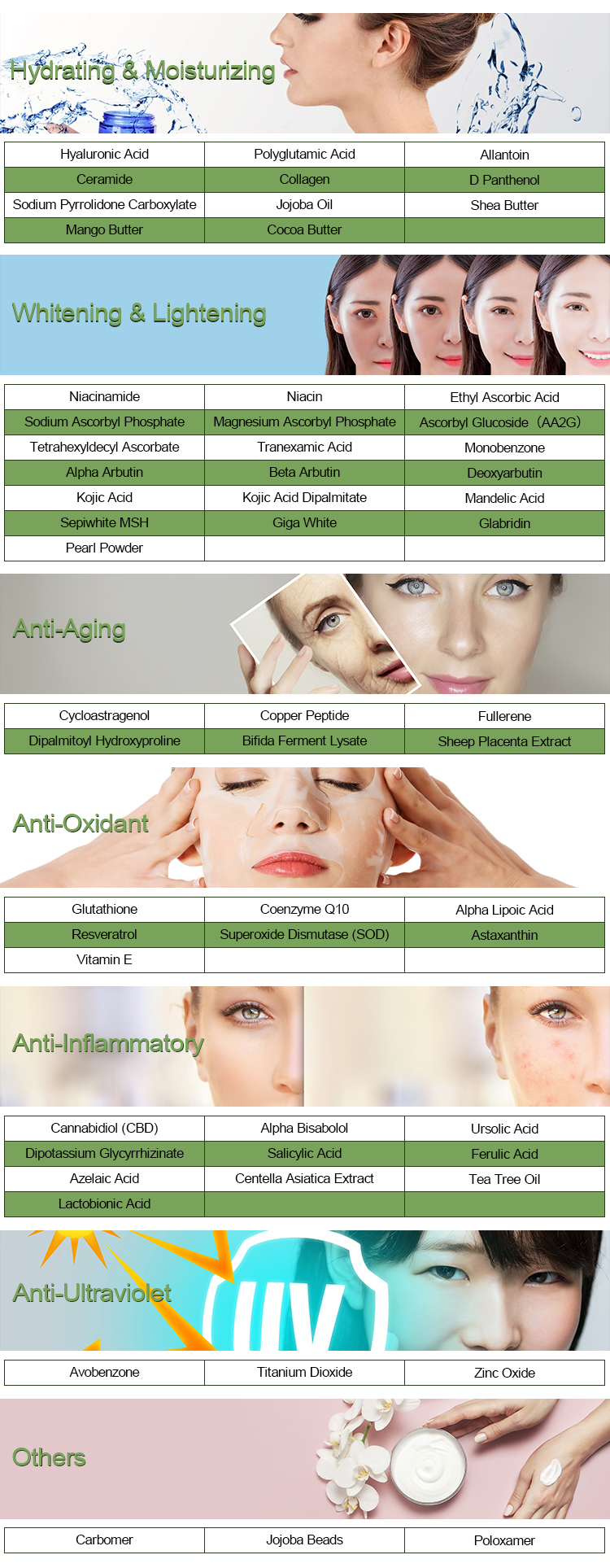Nicotinamide, also known as niacinamide or nicotinic acid amide, is a form of vitamin B3 (niacin). It is an essential nutrient for the human body and plays a crucial role in various biological processes. Here’s the chemical structure and some physical properties of nicotinamide:
Chemical Structure of Nicotinamide:
Nicotinamide has the following chemical structure:

Physical Properties of Nicotinamide:
1.Molecular Formula: C6H6N2O
2.Molecular Weight: 122.12 g/mol
3.Appearance: Nicotinamide typically appears as a white crystalline powder.
4.Solubility: Nicotinamide is soluble in water, ethanol, and methanol.
5.Melting Point: Nicotinamide has a melting point of approximately 128-131°C (262-268°F).
6.Boiling Point: The compound decomposes before reaching a specific boiling point.
7.Odor and Taste: Nicotinamide is odorless and has a slightly bitter taste.
8.Density: The density of nicotinamide is about 1.40 g/cm³.
Nicotinamide is an essential component of coenzymes such as NAD (nicotinamide adenine dinucleotide) and NADP (nicotinamide adenine dinucleotide phosphate), which are involved in various metabolic reactions in the body. It is commonly used in dietary supplements and skincare products due to its potential health and skincare benefits.
Please note that the properties mentioned here are general characteristics of nicotinamide. The compound may have variations in physical properties depending on factors such as purity and the specific form in which it is used.
Origin and properties of Nicotinamide
Nicotinamide, also known as niacinamide or nicotinic acid amide, is a water-soluble B-complex vitamin. It is one of the two primary forms of vitamin B3, with the other being nicotinic acid (niacin). Here are some key points about the origin and properties of nicotinamide:
Origin:
- Nicotinamide is derived from niacin (nicotinic acid), which is an essential nutrient found in various foods. Niacin can be synthesized in the human body from the amino acid tryptophan.
Chemical Structure:
- Nicotinamide has the chemical formula C6H6N2O and is a derivative of pyridine. Its structure includes a pyridine ring with an amide group (-CONH2) attached to it.
Role in the Body:
- Nicotinamide is essential for various physiological processes in the body. It plays a crucial role in the synthesis of coenzymes, particularly nicotinamide adenine dinucleotide (NAD) and nicotinamide adenine dinucleotide phosphate (NADP). These coenzymes are involved in numerous metabolic reactions, including energy production and DNA repair.
Function and Benefits:
- Nicotinamide is important for maintaining proper cellular function and energy metabolism.
- It is used as a dietary supplement and is sometimes included in skincare products due to its potential benefits for skin health. It is believed to have anti-aging and skin-soothing properties.
Food Sources:
- Nicotinamide can be obtained from a variety of dietary sources, including meat, fish, poultry, dairy products, nuts, and legumes. Additionally, the body can convert tryptophan, an amino acid found in protein-containing foods, into nicotinamide.

Deficiency and Toxicity:
- A deficiency of nicotinamide or niacin can lead to a condition known as pellagra, characterized by symptoms such as dermatitis, diarrhea, and dementia.
- Nicotinamide is generally considered safe when taken within recommended dietary levels and does not typically cause the flushing or skin reactions associated with niacin.
Medical Uses:
- Nicotinamide has been studied for various medical applications, including its potential role in the treatment of skin conditions like acne, rosacea, and hyperpigmentation.
- It is also used as a treatment for certain medical conditions, such as pellagra and some forms of niacin deficiency.
Cosmetic and Dermatological Uses:
- Nicotinamide is included in many skincare products, such as creams and serums, for its potential to improve skin hydration, reduce inflammation, and minimize the appearance of fine lines and wrinkles.
It’s important to note that while nicotinamide is generally well-tolerated and safe, individuals with specific medical conditions or those taking certain medications should consult with a healthcare professional before using nicotinamide supplements or skincare products containing nicotinamide.
